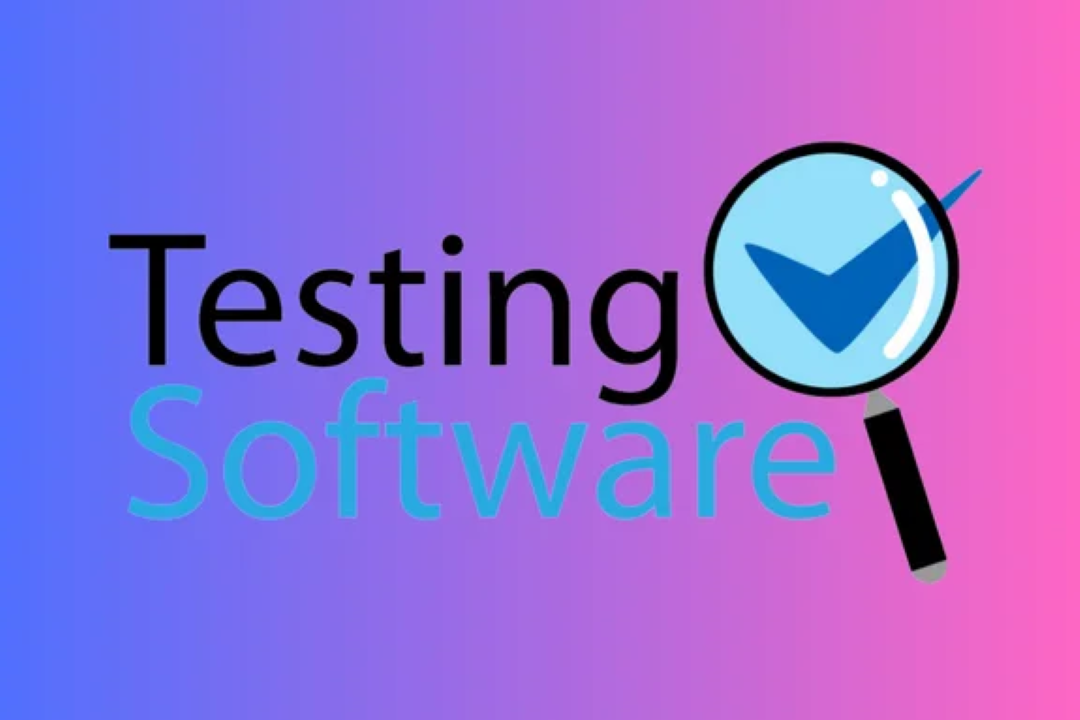Can We Learn Automation Without Manual Testing
Learning automation testing without a background in manual testing is entirely feasible. Automation
Can We Learn Automation Without Manual Testing
Yes, learning automation testing without prior manual testing experience is entirely possible and can be beneficial. Automation testing focuses on the use of tools and scripts to execute test cases, enabling faster and more efficient testing processes. By bypassing traditional manual testing, individuals can quickly acquire technical skills in programming and automation frameworks, making them valuable assets in the fast-paced software development environment. This approach allows aspiring testers to rapidly contribute to projects, enhance their productivity, and ensure software quality at scale, which is increasingly crucial in today's agile development landscapes.
To Download Our Brochure: https://www.justacademy.co/download-brochure-for-free
Message us for more information: +91 9987184296
Yes, learning automation testing without prior manual testing experience is entirely possible and can be beneficial. Automation testing focuses on the use of tools and scripts to execute test cases, enabling faster and more efficient testing processes. By bypassing traditional manual testing, individuals can quickly acquire technical skills in programming and automation frameworks, making them valuable assets in the fast paced software development environment. This approach allows aspiring testers to rapidly contribute to projects, enhance their productivity, and ensure software quality at scale, which is increasingly crucial in today's agile development landscapes.
Course Overview
The “Can We Learn Automation Without Manual Testing” course at JustAcademy offers a comprehensive exploration of automation testing, designed for individuals eager to dive into automated processes without prior manual testing experience. Participants will gain insights into automation concepts, essential programming skills, and the use of popular testing frameworks. The course includes hands-on projects that emphasize real-world applications, enabling learners to effectively implement automation strategies and drive efficiency in software testing. By the end, students will be equipped with the knowledge and skills needed to thrive in the automation testing landscape, making them proficient contributors to agile development teams.
Course Description
The “Can We Learn Automation Without Manual Testing” course at JustAcademy is designed for aspiring testers who want to transition directly into automation testing. This course provides a solid foundation in automation concepts, tools, and programming languages required for effective automated testing. Participants will engage in practical, real-time projects that simulate genuine industry scenarios, ensuring they grasp key automation frameworks and best practices. By the end of this course, learners will confidently understand how to design, implement, and execute automated tests, preparing them for a successful career in software quality assurance without the necessity of prior manual testing experience.
Key Features
1 - Comprehensive Tool Coverage: Provides hands-on training with a range of industry-standard testing tools, including Selenium, JIRA, LoadRunner, and TestRail.
2) Practical Exercises: Features real-world exercises and case studies to apply tools in various testing scenarios.
3) Interactive Learning: Includes interactive sessions with industry experts for personalized feedback and guidance.
4) Detailed Tutorials: Offers extensive tutorials and documentation on tool functionalities and best practices.
5) Advanced Techniques: Covers both fundamental and advanced techniques for using testing tools effectively.
6) Data Visualization: Integrates tools for visualizing test metrics and results, enhancing data interpretation and decision-making.
7) Tool Integration: Teaches how to integrate testing tools into the software development lifecycle for streamlined workflows.
8) Project-Based Learning: Focuses on project-based learning to build practical skills and create a portfolio of completed tasks.
9) Career Support: Provides resources and support for applying learned skills to real-world job scenarios, including resume building and interview preparation.
10) Up-to-Date Content: Ensures that course materials reflect the latest industry standards and tool updates.
Benefits of taking our course
Functional Tools
1 - Selenium: Selenium is one of the most widely used open source automation testing tools, primarily for web applications. It supports multiple programming languages, including Java, C#, and Python, allowing students to write test scripts in a language they are comfortable with. The tool enables users to simulate a variety of user interactions within a web browser. Through hands on training, students will learn how to utilize Selenium WebDriver to automate browser tasks, verify web elements, and manage test cases efficiently.
2) JUnit and TestNG: Both JUnit and TestNG are testing frameworks designed for Java applications. These frameworks provide a structured way to write and organize test cases, making it easier for students to implement automation testing practices. The training program covers annotations, assertions, and reporting features within these tools, empowering learners to create robust test scripts. They will also understand how to integrate these frameworks with Selenium for a more comprehensive automation testing approach.
3) Postman: Postman is a popular tool for testing APIs and is an integral part of automated testing for backend services. The training focuses on teaching students how to create and automate API requests, validate responses, and test RESTful services. With Postman's user friendly interface, learners can easily orchestrate complex testing scenarios, contributing to their understanding of how API testing fits into the broader automation testing landscape.
4) Jenkins: Jenkins is a widely used open source automation server that enables continuous integration and continuous delivery (CI/CD). In this course, students will explore how to automate the deployment of their applications and run tests automatically whenever code changes are made. The training includes setting up pipelines, configuring jobs, and integrating Jenkins with other testing tools. This exposure will showcase the significance of automation in streamlining the software development lifecycle.
5) Cucumber: Cucumber is a tool that supports Behavior Driven Development (BDD). It allows users to write test scenarios in plain language, promoting communication among technical and non technical stakeholders. During the course, students will learn how to implement Cucumber alongside Selenium, enabling them to create tests that reflect user behavior. This hands on training will help them to facilitate better collaboration in teams while improving the clarity of tests.
6) Git: Version control is critical in software development, and Git is the most popular system for managing code changes. The training program will cover the basics of Git, including repositories, branching, and merging, ensuring students understand how to manage their test scripts effectively. Knowledge of Git allows learners to collaborate with teams, track changes, and maintain a clean history of their testing efforts, making it an essential tool in any automation tester’s toolkit.
7) Docker: Docker is an essential tool for creating, deploying, and managing applications within containers. In the training course, students will explore containerization concepts and learn how to use Docker to create isolated environments for their automation tests. This understanding will help them ensure consistency across different stages of the development lifecycle, allowing tests to run reliably regardless of where they are executed.
8) Test Case Design: A crucial part of automation testing involves designing effective test cases. The course will teach students how to create test cases that are efficient, maintainable, and cover a wide range of scenarios. They will learn different testing techniques, such as boundary value analysis, equivalence partitioning, and decision table testing, to ensure comprehensive coverage and reliable test results.
9) Load Testing with JMeter: Understanding application performance is vital for delivering quality software. The training includes an introduction to Apache JMeter, a powerful tool for load and performance testing. Students will learn how to simulate heavy loads on servers, analyze performance bottlenecks, and understand how their applications behave under stress. This knowledge is crucial for ensuring scalability and reliability in production environments.
10) Reporting and Analytics: Effective reporting is essential for understanding test results and making informed decisions. The course will cover different reporting tools and techniques, allowing students to generate informative reports from their testing processes. They will learn how to interpret test outcomes, log errors, and present findings to stakeholders in a clear, actionable manner, enhancing communication within development teams.
11 - Mobile Testing: With mobile applications becoming increasingly vital, automation testing courses will cover tools and frameworks like Appium and Espresso. This portion of training will equip students with skills to automate testing for both Android and iOS applications, ensuring they can deliver high quality mobile experiences in today’s market.
12) Version Control with GitHub/GitLab: Building on Git, this course segment emphasizes using platforms like GitHub and GitLab for collaborative development. Students will learn how to manage branches, handle pull requests, and utilize issues and project boards for easier coordination within teams, enhancing their collaboration skills and making them more efficient in real world scenarios.
13) Agile and DevOps Principles: The training will incorporate Agile methodologies and DevOps practices, emphasizing how automation testing plays a pivotal role in these frameworks. Students will gain insights into Scrum, Kanban, and Continuous Delivery, helping them understand how to align testing efforts with overall project goals and timelines.
14) Exploratory Testing: While automation is powerful, exploratory testing remains an essential skill. The course will include techniques to effectively combine automated tests with manual exploratory efforts, enhancing test coverage and catching potential issues that automated scripts might miss. This balanced approach will equip students with comprehensive testing strategies.
15) Continuous Improvement and Feedback Loops: Understanding how to continuously improve testing processes is crucial for long term success. The training will cover how to implement feedback loops into the testing cycle, adjust strategies based on outcomes, and optimize both automation and manual testing efforts. This pragmatic approach will help students become proactive problem solvers in their testing careers.
Browse our course links : https://www.justacademy.co/all-courses
To Join our FREE DEMO Session:
This information is sourced from JustAcademy
Contact Info:
Roshan Chaturvedi
Message us on Whatsapp:
Email id: info@justacademy.co
Slider Example Flutter Best Practices
Best Local Storage for React Native












